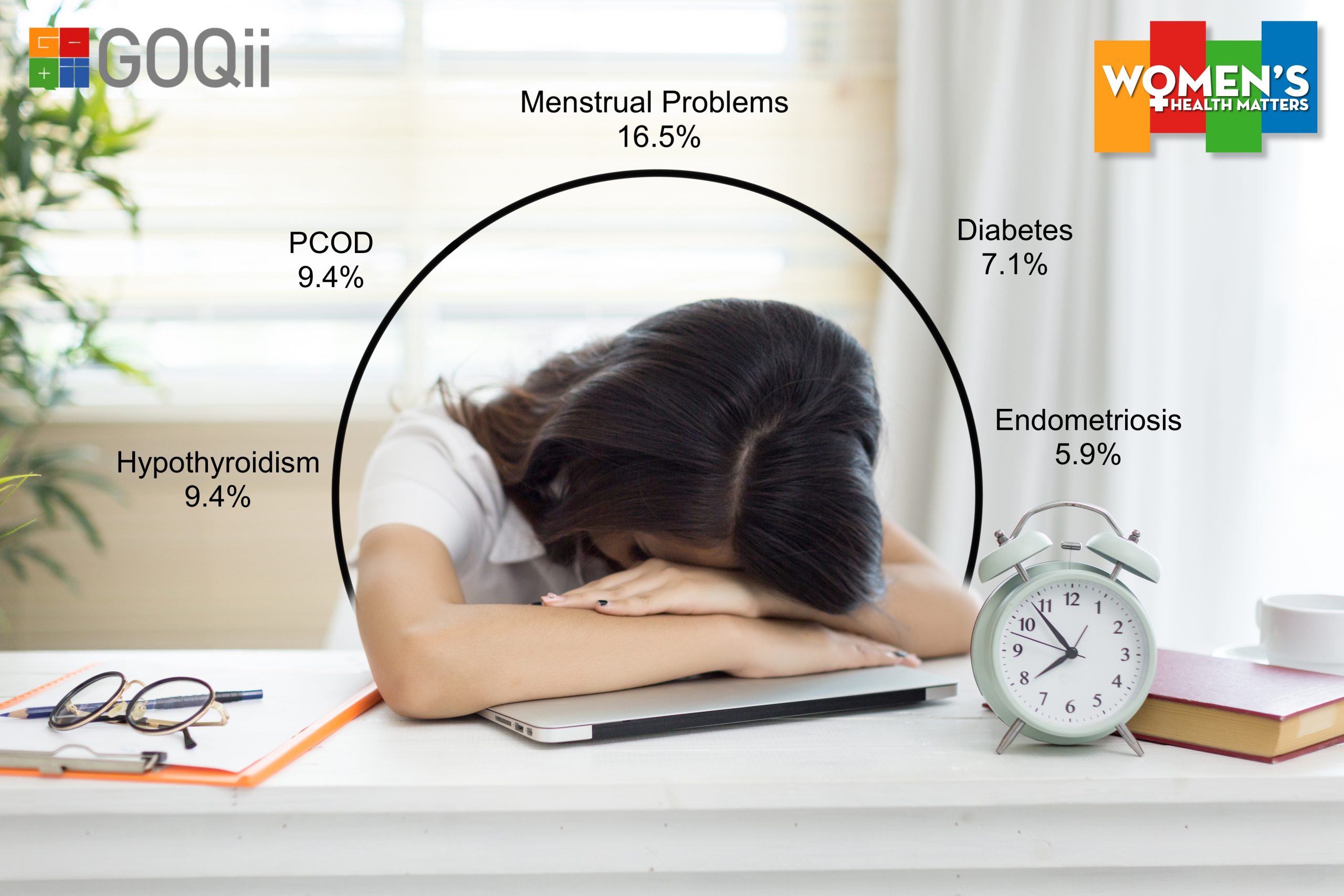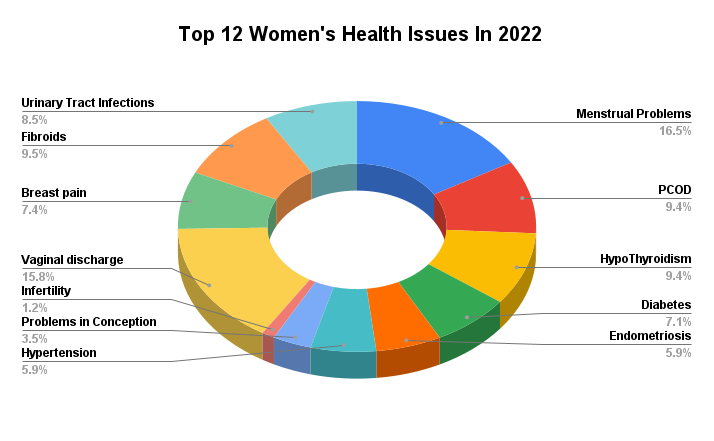
Women’s health is of paramount importance. Women need to ensure that they take the time to look after their physical and mental well-being. They need to put their health first and make sure that they are doing all they can to stay healthy and strong.
In the aftermath of the pandemic, just how extensive was the effect on Women’s Health? To find out, GOQii conducted a focused group study with around 3000 women with questions pertaining to menstrual patterns, PCOD, Thyroid, fertility, conception and pregnancy.
Women’s Health Issues Continue To Persist
In the report, we found that 51% of women in India continue to struggle with ongoing health issues such as menstrual irregularities, polycystic ovary syndrome (PCOS), hypothyroidism, UTI and fibroids, diabetes, and infertility.

Nearly 41.7% of women have PCOS for more than five years, and a similar number of women have had the diagnosis within the past 12 months. Also, 63.3% of those polled experience irregular or infrequent menstrual cycles as a result of PCOS, and 41.7% of the female respondents were unaware that changing one’s lifestyle can help manage PCOS.
Endometriosis Emerges As A Silent Menace
Endometriosis has emerged as a new health issue, affecting one in every 10 women of reproductive age. The survey found that 57.1% of women have had endometriosis for one to five years. Endometriosis is a condition in which tissue similar to the lining of the uterus (endometrium) is found outside of the uterus, usually on the ovaries, fallopian tubes, or other organs in the pelvis. It can cause painful periods, pain during or after sex, and infertility.
Research has indicated that genetic, hormonal and environmental factors may play a role in the onset of endometriosis, though the exact cause of the condition is still unknown. The survey also indicates that 16.5% of women have menstrual issues, and 1.2% have infertility issues, with 21.7% of the women agreeing that their advanced age was indeed a factor contributing to infertility issues.
A woman’s age is a critical determinant in her chances of becoming pregnant and having a healthy child. In India, the childbearing age of women has been steadily increasing over the past decade. This can be attributed to factors such as an increasing number of women in the workforce, rising levels of education, improved access to contraception and changing social norms.
Can Lifestyle Changes Help?
The report concludes that lifestyle modifications can help manage various women’s health issues. Our Founder and CEO Vishal Gondal said in the report that due to the demands of daily life and the juggling of work, family and home commitments, women frequently overlook their health, and emphasized incorporating lifestyle changes into everyday life.
Women need to make sure that they are eating well, exercising regularly, getting enough sleep, and managing their stress levels. Women also need to make time for self-care activities such as yoga & meditation. Women’s health is a priority, women need to remember that their health is their greatest asset, and they must look after it accordingly.
To read the detailed report, click here. For more on improving women’s health issues through lifestyle, click here.
#BeTheForce
 On GOQii Arena, we share our food, activity, moments, posts, and other health-related daily routine activities. Many players use the Arena as a platform to showcase their healthy habits and inspire others to adopt similar behaviors. But have you ever wondered why sharing these healthy habits in the GOQii Arena can be so rewarding? In this article, we’ll explore the neurotransmitter impacts of sharing healthy behavior and how it can impact our health and well-being.
On GOQii Arena, we share our food, activity, moments, posts, and other health-related daily routine activities. Many players use the Arena as a platform to showcase their healthy habits and inspire others to adopt similar behaviors. But have you ever wondered why sharing these healthy habits in the GOQii Arena can be so rewarding? In this article, we’ll explore the neurotransmitter impacts of sharing healthy behavior and how it can impact our health and well-being.




